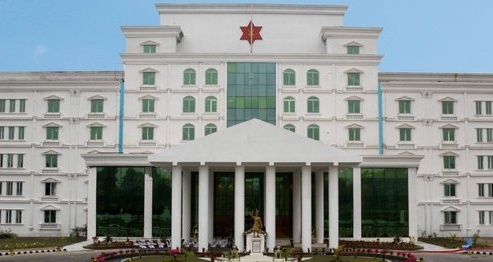Politicians question govt intent to assign med supply deal to Army
KATHMANDU: Following the health department's decision to scrap medical equipments procurement deal with a private company, reports were rife about government assigning the task of facilitation of procurement to Nepal Army.
On Thursday, the news of cabinet deciding on entrusting the military organisation with the procurement through a government-to-government process became widespread, which invited a lot of reaction from several quarters, including leaders of various political parties.
Politicians were quick to comment on the issue, a current centre of discussion on social media.
Baburam Bhattarai, co-chair of Samajwadi Party Nepal on Thursday eve expressed suspicion over the government move to hand over the task to Nepal Army. "Guns and bullets probably won't kill the virus! Why has the government passed the responsibility to the army when civil entities like commerce and supplies should be facilitating it?" he tweeted. "What stopped the government from procuring equipments through G2G process earlier? Is it because CIAA can't look into this matter?"
Similarly, Kamal Thapa, co-chair of Rastriya Prajatantra Party, in agreement with Bhattarai stated that Army shouldn't be used in such public procurement deals. "The army shouldn't agree to such tasks. It only proves that the government's functional capacities have decreases and it is incompetent, and I don't thing we've reached that stage yet," Thapa said in a tweet.
Not only the leaders in opposition, politicians from the ruling party too expressed dissatisfaction. Ram Kumari Jhakri has questioned if the civil authorities have lost all credibilties while Bishnu Rijal has urged to look for a long term solution rather than relying on Nepal Army for every other task that doesn't materialise on the first-go.
This is not the first time that the army have been 'passed-on' the responsibility of completing a task which a designated first party failed to fulfill. However, many are of the opinion that this malpractice only questions the state's capacity, or the lack of it, to strengthen civil bodies instead of making army the forever fall-back plan.






